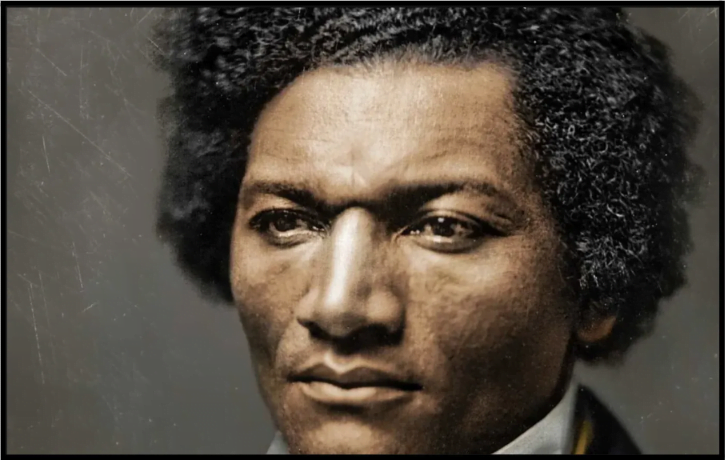How to Know Person is a new book filled with timeless wisdom. It explores the art of seeing others and being deeply seen.
Talking Big Ideas.
“The deepest principle in human nature
is the craving for appreciation.”
~ William James
There’s a beautiful scene from Doctor Who that everybody should see.
The time-traveling doctor and his partner are back in the 1800s hanging out with the troubled painter Vincent Van Gogh. All three of them then travel together to the year 2010 and walk through an art museum in Paris. Van Gogh is shocked to see an exhibit of his work. He gets to watch and hear how people respond.
The full 3-minute clip is below. You have to see it. But first, it’s important to clarify that in real life Van Gogh felt so invisible he committed suicide. He was haunted by insecurities and sold just one major painting during his life. Hundreds of his masterpieces were unseen by the world at the time of his death.
Here’s the time-traveling Van Gogh arriving in 2010 Paris:
You palpably feel Van Gogh’s joy in finally being seen.
You also feel Van Gogh’s sense of awe and gratitude as he overhears an art expert describe him as “the finest painter of them all . . . not only the world’s greatest artist but also one of the greatest men who ever lived.”
I thought about this scene while reading David Brooks’ new book How to Know a Person. Brooks argues that all of the social skills in life can be boiled down to “one foundational skill: the ability to understand what another person is going through . . . to see someone else deeply and make them feel seen.”
According to the therapist Mary Pipher, doing this well is the most important thing in the world. It’s how we connect, heal, and grow – as individuals and as a society.
Brooks argues there is a battle happening inside each of us. There are forces pushing us to be self-absorbed which ultimately cause us to diminish others and make them feel bad. On the flip side, we can feel drawn to connect with people and help them feel seen.
We all play both roles at various times, which Brooks calls Diminishers and Illuminators.
Brooks takes us to a bar in Washington DC as he watches people while they stare at their phones instead of talking with each other. He listens to a man meander through a monotonous monologue while his poor date appears desperate to escape.
“Diminishers everywhere!” he thinks before realizing he’s the worst of all – sitting alone and harshly judging those around him. We all have several “inborn proclivities” that nudge us in the wrong direction:
- Anxiety: The noise in our heads is too loud to notice what’s happening in other people’s heads.
- Egotism: We fail to see others because we are so focused on trying to get them to see us.
- Essentialism: We assign people into groups and then stereotype them with false immutable characteristics.
- The Lesser Mind Problem: We are exposed to all our thoughts but only a fraction of other people’s thoughts. So we imagine we are more complex, intelligent, and sophisticated.
- Naive Realism: We think we see the whole truth, therefore everyone else must see the world exactly as we do or they’re wrong.
- Objectivism: We focus on data and statistics instead of paying attention to the unique individuals before us.
- Sizing People Up: We quickly form negative judgments about the people around us while telling ourselves we are higher status than them.
- The Static Mindset: We know someone from an earlier stage in their life and fail to see they’ve grown and matured.
Reading through these can sting because we relate. I’ve certainly been guilty of them all. Most are default settings inside us. We all naturally get nudged by these forces into acting as Diminishers, oblivious to our negative impact on those around us.
Overcoming our default settings is hard. We have to learn how to control and refocus our attention. A few years ago I wrote in an essay:
I like to think of attention as a laser. The scope is narrow, and it cannot hit two things at once. But it has a powerful impact on whatever it focuses on — which is why there are so many internal and external distractions trying to get a hold of it! We must be super protective of our laser . . . the quality of its focus is the quality of our life.
When we focus on beautiful things, we find them all around us. When we focus on terrible things, we find them everywhere as well.
Certain people can walk into a room and light it up while others walk into the same room and cast a shadow over it. Our perceptions shape our reality, and our energy often dictates the atmosphere we carry and the impact we have on those around us.
The philosopher Iris Murdoch argues that the foundation of morality is the simple act of paying attention to someone in a nonjudgmental and loving way. It’s about focusing our attention to see people fully.
Illuminators are masters of their attention. They focus on others and help them feel seen. Here are Brooks’ features of an Illuminator that he encourages us to cultivate:
- Active Curiosity: An imagination working hard to see through different eyes.
- Affection: Acting in a helpful way. Typically involves connecting with our intellect as well as our heart.
- Generosity: Seeing beyond societal norms to uplift and support others.
- Holistic Attitude: Seeing the whole person. Resisting the urge to simplify and stereotype.
- Receptivity: Opening up to the experience of others. Rather than project our viewpoint, we accept without judgment what the other person offers.
- Tenderness: Deep emotional concern for another human being. Think Mr. Rogers, Mother Teresa, and Ted Lasso.
There are times when you and I display these qualities. And times we utterly fail. We are both Diminishers and Illuminators, just like everyone else. As Leo Tolstoy wrote:
One of the commonest and most generally accepted delusions is that every man can be qualified in some particular way . . . kind, stupid, energetic, apathetic, and so on. People are not like that . . . every man bears within him the germs of every human quality.
Learning to truly see people as they are, in their fullness and complexity, is one of the great challenges in life. But we can do it. We can rise above our Diminisher default and be an Illuminator. We’ll explore how in future pieces.
In the meantime, I challenge you to choose one Illuminator quality and embrace it today.





